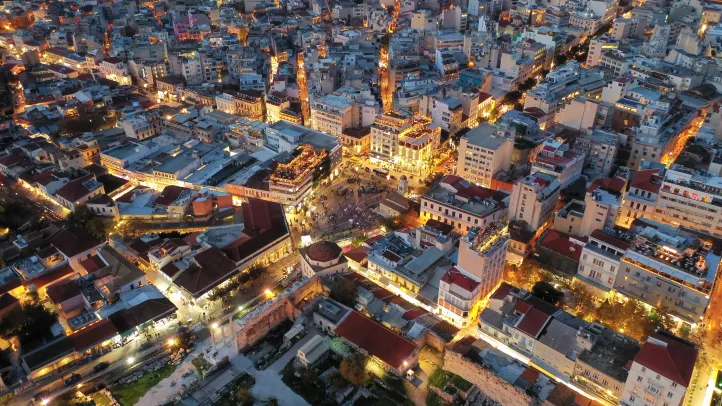The Price of Greek Real Estate: A Steady Climb Upward
Property prices in major cities are continuing to rise significantly. According to the latest report from the Bank of Greece, prices in the second quarter of 2024 increased by 9.2% compared to the same period last year. This data confirms the ongoing upward trend in the country’s real estate market, which has been steadily growing since 2014.

Let’s dive into where prices are rising the most and by how much.
How Prices Have Changed for Different Types of Apartments
Prices for new apartments, less than 5 years old, rose by 10.7%. On the secondary market, where properties are older than 5 years, prices increased by 8.3%.
For comparison, in 2023, the growth rate for new apartments reached 12.8%, while in 2022, it was 12.5%. As for secondary market properties, prices in 2023 rose by 14.5%, compared to 11.6% in 2022.
This demonstrates not only strong demand but also the continued popularity of properties on the secondary market. Despite varying growth rates, these properties remain highly competitive in the eyes of buyers.
Location and Real Estate Prices in Greece
The Bank of Greece’s report highlights price growth differences across regions. Thessaloniki saw the sharpest increase at 12.1% (compared to 14.9% the previous year), while Athens saw a 9.1% rise in apartment prices in the first half of the year (compared to 13.8% the previous year). In other major cities, prices rose by an average of 7.3%, and in other regions of Greece, by 10.4%.
The most desirable—and therefore most expensive—areas in Greece remain the southern suburbs of Athens, the Cyclades, northern Athens suburbs, Lefkada, and Piraeus.
According to leading real estate platform Spitogatos, Vouliagmeni in Attica stands out with a price of €6,476 per square meter, double the median for the region. Following closely are Voula (€5,625 per sqm) and Kolonaki-Lykavittos (€5,000 per sqm).
For comparison, in 2023, price growth extended beyond the major cities, covering peripheral regions as well. The regional breakdown was as follows: Athens saw a 13.8% increase, Thessaloniki 16.5%, other major cities 14.9%, and smaller regions 11.6%.
Long-Term Forecast: What to Expect from Property Prices in Greece
Looking at historical data, the peak housing price index was recorded in the third quarter of 2008, reaching 102.20 points. In comparison, the second quarter of 2024 is still 2.5% below this level. However, this marks a significant rise: since the low point in the third quarter of 2017, the index has surged by 69.3%.

Greece’s housing sector continues its recovery from the European economic crisis of the 2010s. Both domestic and international demand for real estate remains strong. The apartment price index shows that property prices have been growing for the sixth consecutive year, outpacing earlier years.
Several factors have contributed to the housing market's strength, including foreign investor demand, tourism, the "Golden Visa" program, and the subsidized mortgage scheme ("My Home") for young first-time buyers.
The rise in apartment prices in 2024 shows that real estate continues to be a key investment asset for both local and foreign investors. With current policies focused on reforming the "Golden Visa," offering tax incentives, and improving infrastructure, particularly in cities like Athens and Thessaloniki, demand for housing is expected to keep rising. This creates a favorable environment for long-term investments, especially during periods of instability in other financial markets.
How Investors Should Act in Greece’s Real Estate Market
The outlook for investors remains positive despite geopolitical uncertainty, rising energy and material costs, high interest rates, and ongoing changes in legislation and taxation.
The Greek real estate market continues to show solid growth, with rising property prices both in metropolitan areas and beyond. For investors, this means stable opportunities for income generation, while buyers need to stay aware of trends and adjust their expectations in response to the growing demand.




